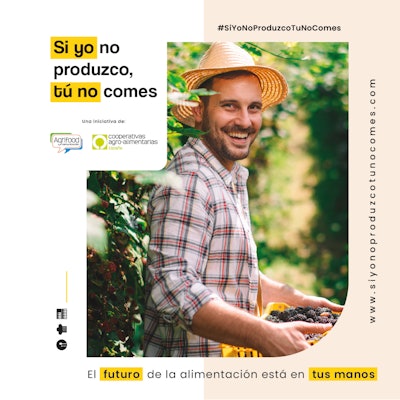
During the pandemic, food producers and distributors (along with medical personnel) were seen as heroes. But time passes, and after that, they went back to being tyrants because of issues such as animal welfare, sustainability, pollution and so on. Sometimes I wonder: why this hostility toward animal production? The industry has been quiet, reluctant to stand before their work.
Well, last year, a group of private companies and co-ops in Spain started a campaign with a title I love: “If I don’t produce, you don’t eat” (Si yo no produzco, tú no comes in Spanish). The campaign, headed by Agrifood Comunicación, brings together ideas and activities to tackle attacks made against producers that follow a model different to what the EU authorities and groups of interest have established.
“Producers are getting tired of so many determining factors that are being imposed,” said Ricardo Miguelañez, general manager of the campaign, “which is making animal production unviable.”
It is a visibility campaign for food producers because it seems that authorities “want to turn Europe into a recreational area, where no foods are produced, no animals are raised, because it is doing bad.” The campaign has an attractive name to call everybody’s attention that if foods are not produced, it will be very expensive and non-sustainable to bring them from somewhere else.
The other problem is that the new generations do not want to work in food production. Food production is losing its good reputation. Vets don’t want to work with production animals anymore, and rural areas are emptying.
The campaign works with media to launch positive messages about food production and that it is not as scary as certain groups claim. It is about technology, respect for the environment, respect for animal welfare, the social aspects of rural life and the economy, the employment generated, as well as the use of science to make decisions and be more efficient and sustainable.
The crowdfunding campaign has not reached the goal of 500,000 euros yet; it is falling short. They have been adapting funds obtained to do some of the work, including social media promotions and activities with media willing to listen and disseminate the information. By the end of this year, they will decide what they will do next.
I think it is a fantastic idea. This wonderful initiative must continue.
What do you think?



















